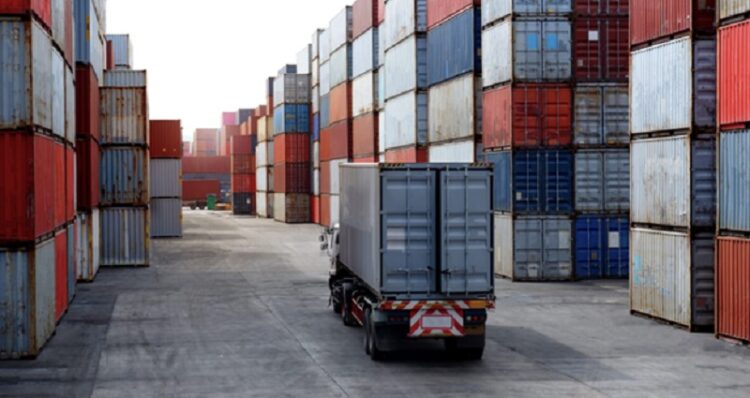
The Critical Role of Container Devanning in Streamlining Operations and Reducing Costs
Carole Stehr | July 26, 2024 | 0 | BusinessIn the intricate world of supply chain management, efficiency is paramount. One key process that plays a pivotal role in streamlining operations and reducing costs is container devanning. This procedure, which involves the unloading of goods from shipping containers, is crucial for maintaining a smooth flow of inventory and ensuring timely delivery to end destinations. By focusing on optimising devanning, businesses can significantly enhance their supply chain efficiency, leading to improved operational performance and cost savings.
The Importance of Container Devanning
Devanning is more than just a logistical necessity; it is a critical step that impacts various aspects of supply chain management. Effective devanning ensures that goods are unloaded safely and promptly, minimising the risk of damage and delays. This process requires careful planning and execution, as the improper handling of goods during devanning can lead to significant losses and operational disruptions.
In a globalised economy where supply chains are increasingly complex, the ability to efficiently unload and process containers directly influences a company’s ability to meet customer demands. Timely and accurate devanning is essential for maintaining inventory accuracy, reducing lead times, and enhancing overall supply chain responsiveness. By investing in optimising this process, businesses can achieve greater control over their inventory, improve service levels, and reduce operational bottlenecks.
Techniques for Efficient Devanning
Achieving efficiency in devanning involves implementing best practices and leveraging appropriate technologies. One effective approach is to utilise automated equipment and systems designed to streamline the unloading process. Automated devanning solutions can significantly reduce the time and labour required to unload containers, while also minimising the risk of human error. These systems are particularly beneficial for handling large volumes of goods, as they can process containers quickly and accurately.
Another key technique for efficient devanning is to employ a well-trained workforce. Skilled workers who are knowledgeable about proper unloading procedures and safety protocols can greatly enhance the efficiency of the devanning process. Regular training and upskilling of staff ensure that they are equipped with the latest knowledge and techniques, enabling them to handle goods with precision and care.
Additionally, effective communication and coordination among different teams involved in the supply chain are crucial for optimising container devanning. By fostering collaboration between warehouse staff, logistics managers, and transportation providers, businesses can ensure that the devanning process is seamlessly integrated into the broader supply chain operations.
Reducing Costs Through Optimised Devanning
Optimising devanning not only improves operational efficiency but also contributes to significant cost savings. One of the primary ways it achieves this is by reducing the time and labour required for unloading containers. Automated devanning systems, for instance, can handle large volumes of goods with minimal human intervention, leading to lower labour costs and increased productivity.
Moreover, efficient devanning minimises the risk of damage to goods, which can result in costly replacements and disruptions. By ensuring that goods are unloaded and handled with care, businesses can reduce the incidence of damage and associated costs. This not only protects the value of the inventory but also enhances customer satisfaction by ensuring that products are delivered in optimal condition.
Another cost-saving benefit of optimised devanning is the improved utilisation of warehouse space. Efficient unloading and processing of containers allow for better organisation and management of inventory, reducing the need for excessive storage space. This leads to lower warehousing costs and enables businesses to allocate resources more effectively.
Enhancing Overall Supply Chain Performance
The benefits of optimising devanning extend beyond immediate cost savings and operational efficiency. By integrating efficient devanning practices into the supply chain, businesses can achieve greater agility and responsiveness. This is particularly important in today’s fast-paced market environment, where customer expectations for timely and accurate deliveries are higher than ever.
Efficient devanning also supports better inventory management, as it allows for real-time tracking and monitoring of goods. This visibility enables businesses to make informed decisions regarding stock levels, replenishment, and distribution, ultimately leading to improved service levels and customer satisfaction.
Environmental and Safety Benefits of Efficient Devanning
Optimising container devanning not only benefits operational efficiency and cost but also has positive environmental and safety implications. Efficient devanning processes reduce the time containers spend idling, thereby cutting down on fuel consumption and emissions from transportation vehicles. This contributes to a smaller carbon footprint and aligns with global efforts to promote sustainability in logistics and supply chain management.
Furthermore, by implementing safety protocols and using automated systems, the risks associated with manual handling of goods are significantly reduced. Efficient devanning minimises the chances of accidents and injuries in the workplace, ensuring a safer environment for employees. Companies that prioritise safety and environmental responsibility can enhance their reputation and meet regulatory requirements more effectively, leading to long-term sustainability and compliance.
Conclusion:
In conclusion, container devanning is a critical process that significantly impacts supply chain efficiency and cost management. By focusing on optimising this procedure through the use of automated systems, skilled labour, and effective coordination, businesses can streamline their operations, reduce costs, and enhance overall supply chain performance. Investing in efficient devanning practices is not just a logistical necessity but a strategic advantage that can drive long-term success in the competitive world of supply chain management.













